|
Pycnogenol and ADHD
Pycnogenol and allergies
Pycnogenol and attention deficit disorder
Pycnogenol and autism
Pycnogenol and cancer
Pycnogenol and depression
Pycnogenol and free radicals
Pycnogenol anti-oxidant
Pycnogenol
Bibliography
Pycnogenol discovery
Pycnogenol excerpts from Dr. Richard
Passwater
Pycnogenol
FAQ
Pycnogenol helps sports injuries
Pycnogenol improves healthy NO production
Pycnogenol in the
News
Pycnogenol outperforms conventional drug
Pycnogenol reduces endometriosis
Pycnogenol reduces hypertension
Pycnogenol reduces perimenopausal symptoms
Pycnogenol slows glucose uptake
Pycnogenol speeds healing of foot ulcer
Who owns pycnogenol rights
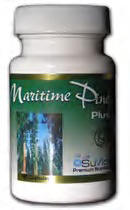 Maritime
Pine Pycnogenol
is the super-antioxidant that has been tried and
tested by over 30 years of research for many acute and chronic
disorders. The Ojibwe knew about it almost 500 years ago.
Didn't call it that, though. White man took credit. Maritime
Pine Pycnogenol
is the super-antioxidant that has been tried and
tested by over 30 years of research for many acute and chronic
disorders. The Ojibwe knew about it almost 500 years ago.
Didn't call it that, though. White man took credit.
Shegoi -
Natural herbs for Cold Sores, Chickenpox, Genital Herpes,
Shingles, Epstein-Barr, and other herpes outbreaks, from the
native people of the Southwest.
Seroctin--the
natural serotonin enhancer to reduce stress and depression,
and enjoy better sleep
Plant Magic is Organic Gardening Nature's Way
Accelerated Mortgage Pay-off can
help you own your home in half to one third the time and save many
thousands of dollars.
Get gold and silver.
Protect your liquid net worth
with real Liberty Dollars in both gold and silver!
Listen to
American Indian Radio
while you surf
A New Beginning: A Practical
Course in Miracles
1 INTRODUCTION
2 HISTORY
OF COMMERCE
3 RESPONSIBILITY
4
REDEMPTION
5
POWER OF ACCEPTANCE
6
BEING A DIPLOMAT
7
BEING A SOVEREIGN
8
PRIVATE BANKING
 Museum-quality
willow animal effigies of the Southwest
Archaic culture, art from a 4,000 year-old tradition by Bill Ott Museum-quality
willow animal effigies of the Southwest
Archaic culture, art from a 4,000 year-old tradition by Bill Ott
Photo
Gallery
Traditional Life of the Ojibwe
Aurora Village Yellowknife
The Making of a Man
Little Dancer in the Circle
Friends in the Circle
Grass Dancer
Shawl Dancers
Jingle Dress Dancers
Fancy Shawl Dancer
Men Traditional Dancers
Powwow:
The Good Red Road
Crater Lake Photo Gallery
Crater Lake Landscape
Flowers of Crater Lake
Birds & Animals of Crater Lake
Gold Mantled Ground Squirrel
The Rogue River
Sacred Fire of the Modoc
 Get
a course to promote your business online, explode your sales Get
a course to promote your business online, explode your sales
 Get
software to promote your business online in less time Get
software to promote your business online in less time
Get software to streamline your business and run it hands free.
|
|
Study Shows Pycnogenol(r)
Alleviates Pregnancy Pain
June,15,2007
Kohama T, Inoue M. Pycnogenol(r) alleviates
pain associated with pregnancy. Phytother Res. 2006;20:232-234.
Pycnogenol(r) (Horphag Research Ltd;
Geneva, Switzerland), a standardized extract from the French maritime pine
(Pinus pinaster) bark, has anti-inflammatory activity and spasmolytic
activity (relieves or prevents spasms) in the uterus of animals. In a
previous study the authors reported that Pycnogenol significantly
alleviates abdominal and lower back pain in women with menstrual cramps.
Considering that most pregnant women experience pregnancy-related pain,
such as lower back pain and inguinal pain, the authors evaluated
Pycnogenol in pregnant women.
Pregnant women in their third trimester (n=140) with lower back pain, hip
joint pain, pelvic pain, pain due to varices (abnormally enlarged or
twisted blood vessel or lymphatic vessel), or calf cramps participated in
this study conduced in Ishikawa Pref., Japan. Eighty women were treated
with Pycnogenol 30 mg, taken at breakfast, for 6 weeks. Sixty women were
untreated controls. Physicians interviewed the patients and scored their
level of pain before treatment, after 2 weeks of treatment, and after 36
gestational weeks. The authors do not state whether the study was blinded
to the physicians.
For all symptoms (lower back pain, hip joint pain, inguinal pain, pain due
to varices, or calf cramps), there was a significant improvement from
baseline in pregnancy-related pain after 2 weeks of treatment with
Pycnogenol (P<0.01). In some patients who were not responsive to wet
compresses or the analgesic drug Loxonin (Lead Chemical Co, Japan),
Pycnogenol decreased pain scores but in some cases the improvement was not
statistically significant. These patients may have needed a higher dose of
Pycnogenol. There were no adverse side effects. The authors advise that
Pycnogenol should not be used in the first trimester of pregnancy.
The authors conclude that Pycnogenol is a safe and effective method of
alleviating pregnancy-associated pain during the third trimester. The
authors did not discuss the possibility that there could have been a
substantial placebo effect: the Pycnogenol-treated patients may have felt
better because they believed the treatment would help. The study would be
much more convincing if there had been a placebo-treated control, rather
than an untreated control group. In addition, the study does not appear to
have been randomized or blinded, two conditions requisite of a rigorous
study.
—Heather S. Oliff, PhD
|
Impact of Pycnogenol(R) on cardiac extracellular matrix remodeling
induced by L-NAME administration to old mice.
|
|
[My paper]
Sherma
Zibadi ,
Qianli Yu
,
Peter J
Rohdewald ,
Douglas F
Larson ,
Ronald
Ross Watson |
| Cardiac
remodeling is a determinant of the clinical progression of heart
failure and now slowing or reversing remodeling is considered as a
potential therapeutic target in heart failure. Pycnogenol(R) has been
reported to mediate a number of beneficial effects in the
cardiovascular system but its effects on hemodynamic and functional
cardiovascular changes following cardiac remodeling have not been
elucidated. Therefore, we investigated the influence of Pycnogenol(R)
supplementation (30 mg/kg) on left ventricular function and myocardial
extracellular matrix composition in old C57BL/6N mice following
induction of cardiac remodeling by chronic nitric oxide synthase
blockade by NG-nitro-L-arginine methyl ester (L-NAME) administration.
L-NAME-treated mice demonstrated dilated cardiomyopathy at compensated
state, associated with a significant increase of pro-matrix
metalloproteinase (MMP)-9 gene expression and activity, a marked
decrease in pro-collagen IIIalpha1 gene expression, and a subsequent
reduction in cardiac total and cross-linked collagen content. Upon
supplementation with Pycnogenol(R) in L-NAME-exposed mice, cardiac
gene expression patterns for pro-MMP-2, -9, and -13, and MMP-9
activity were significantly decreased, associated with a significant
increase in cardiac tissue inhibitor of metalloproteinase (TIMP)-4
expression. These findings were coincided with a marked increase in
myocardial total and cross-linked collagen content, compared with
L-NAME-only-treated mice. Moreover, Pycnogenol(R) treatment was
associated with reversal of L-NAME-induced alternations in hemodynamic
parameters. These data indicate that Pycnogenol(R) can prevent adverse
myocardial remodeling induced by L-NAME, through modulating TIMP and
MMPs gene expression, MMPs activity, and further reduction in
myocardial collagen degradation rate.
|
|
Perfusion.
2007 Jan ;22 (1):51-5 17633135 |
Protection from Inflammation,
Immunosuppression and Carcinogenesis Induced by UV Radiation in Mice by
Topical Pycnogenol®
Suzann Sime and Vivienne E.
Reeve
Faculty of Veterinary
Science, University of Sydney, Sydney, NSW, Australia
Pycnogenol® is a
standardized extract of the bark of the French maritime pine,
Pinus pinaster Ait., that has multiple biological
effects, including antioxidant, anti-inflammatory and anticarcinogenic
properties. This study describes the effect of topical application of
lotions containing Pycnogenol® to Skh:hr hairless mice undergoing
minimally inflammatory daily exposures to solar-simulated UV radiation
(SSUV). We report that concentrations of Pycnogenol® of 0.05–0.2%
applied to the irradiated dorsal skin immediately after exposure
resulted in dose-dependent reduction of the inflammatory sunburn
reaction, measured as its edema component. When mice received three
consecutive daily exposures of minimally edematous SSUV, their ability
to raise a contact hypersensitivity (CHS) reaction was suppressed by
54%. Pycnogenol® lotions applied postirradiation reduced this
immunosuppression to 22% (0.05% Pycnogenol®) and 13% (0.1%
Pycnogenol®). Furthermore, when CHS was suppressed by 71% with
exogenous treatment with cis-urocanic acid, the putative
epidermal mediator of photoimmunosuppression, 0.2% Pycnogenol® lotion
reduced the immunosuppression to 18%. Chronic exposure to SSUV on 5
days/week for 10 weeks induced skin tumors from 11 weeks in both
control mice and in mice receiving daily applications of 0.05%
Pycnogenol®, but tumor appearance was significantly delayed until 20
weeks in mice receiving 0.2% Pycnogenol®. Furthermore, whereas 100% of
control mice had at least one tumor by 30 weeks, and mice treated with
0.05% Pycnogenol® by 33 weeks, the maximum tumor prevalence in mice
treated with 0.2% Pycnogenol® was significantly reduced to 85%, with
some mice remaining tumor free. Average tumor multiplicity was also
significantly reduced by 0.2% Pycnogenol®, from 5.2 in control mice to
3.5 at 35 weeks. Thus, topical Pycnogenol® offered significant and
dose-dependent protection from SSUV-induced acute inflammation,
immunosuppression and carcinogenesis, when applied to the skin after
daily irradiation. Pycnogenol®, therefore, in addition to its
recognized health benefits in other organs, appears to have potential
in providing photoprotection for humans in a complementary role with
sunscreens, having demonstrable activity when applied to the skin
after, rather than before, UV exposure.
Received: August 14, 2003;
Accepted: November 17, 2023
Pycnogenol® Augments Macrophage Phagocytosis
and Cytokine Secretion
Vandana Shah,
Erben Bayeta and
Benjamin H.S. Lau Pakistan Journal of
Nutrition 1 (5): 196-201, 2002
We previously reported that Pycnogenol®,
procyanidins extracted from the bark of French maritime pine (Pinus
maritima Aiton; the official botanical name is now Pinus pinaster
Aiton) is a potent free radical scavenger. It has been shown to inhibit
macrophage oxidative burst. Macrophages carry out their microbicidal and
tumoricidal activities via oxygen-dependent and oxygen-independent
mechanisms. The present study investigated the effects of Pycnogenol®
on oxygen-independent killing mechanisms of macrophages, with particular
interest in phagocytosis and cytokine release. J774 cells, a murine
macrophage cell line, were preincubated with Pycnogenol® and
then exposed to fluorescein-conjugated Escherichia coli particles
for phagocytosis. Pycnogenol® significantly enhanced the
phagocytosis by J774 cells. Incubation with Pycnogenol®
resulted in a significant increase in cell size indicating macrophage
activation. J774 cells were treated with Pycnogenol® for 22 hr
and the supernatants were tested for the release of tumor necrosis
factor-alpha (TNF-alpha) and interleukin-1 beta (IL-1beta). Pycnogenol®
significantly increased the secretion of both TNF-alpha and IL-1beta .
These results suggest that Pycnogenol® can enhance the
macrophage function by increasing its ability to phagocytosis and
secretion of TNF-alpha and IL-1beta . These two cytokines may provide
costimulatory signals to enhance both the humoral and cellular immune
responses to promote host defense.
06/01/2024
Daily Mail: Pine Tree Bark Pill Relieves Asthmatics
Maritime Pine Plus® is an Extract from the
bark of a French tree can significantly reduce the symptoms of asthma.
Some Patients may be symptom-free after three months, and one 30-year-old
man who began taking the twice-a-day supplement 14 months ago has not had to
use an inhaler for a year.
By Roger Dobson
Read Full Article (794Kb)
05/02/2024
Sunday Times: What's the Alternative
By Susan Clark,
Read Susan Clarks answers to readers questions about Maritime Pine
Plus®:
Full article
03/22/2004
LA Times: Pine-bark extract has many uses
By Elena Conis,
Maritime Pine Plus® is extracted from the bark of a coastal pine
tree, grown in southern France, that is commonly harvested to make
paper and lumber. The compound is a mixture of plant chemicals known
as procyanidins, which are types of flavonoids. The procyanidins
found in Maritime Pine Plus® also are abundant in grapes, apples,
cocoa, peanuts, blueberries and cranberries.
Read the full article [PDF, 1 MB]
03/02/2024
Daily Mail: Pine Bark Pill That Beats DVT
A pill made from a pine bark can
provide a safe way to protect travelers from potentially fatal DVT.
By Martyn Halle
Read Full Article
(236Kb
01/17/2004
Reader's Digest: Medical Breakthroughs 2004
Fertility from the Forest
An extract from the bark of a pine tree that grows along the coast
of southwestern France may improve the health of sperm in men with
fertility problems. The extract, called Pycnogenol, is one of the
most potent antioxidants known.
09/25/2003
The Healing Powers of Pine Bark (THE TIMES)
THE TIMES, THURSDAY SEPTEMBER 25, 2024 / PAGE
13
SO FAMOUS were the curative powers of
the pine-laden atmosphere of French Atlantic coastline near Biarritz that
every year the ageing, bronchitic King Edward VII, together with his friend
Mrs Keppel, would migrate from the damp of England to holiday among the pine
forests.
Doctors, biochemists and biologists attending a recent international
conference on Andros on oxidative stress in skin biology and medicine,
arranged by the University of Athens, learnt that although the air around
the pine forests may have been pleasant to breathe, any health advantages of
the maritime pines - Pinus pinaster - may actually lie in their bark.
Read the whole article:
PDF Document
[690KB]
07/01/2024
Great Life Magazine, July 2003: Grow Young with Maritime Pine Plus®
"Grow young with Maritime Pine Plus®"
From fighting heart disease to slowing the damaging effects of
the sun, this pine tree bark extract puts the bite on aging.
by marie moneysmith
download the full article (590kb
PDF-Document
06/12/2023
Wholefoods, June 2003: Maritime Pine Plus® and Heart Health: New Studies
An Interview with Dr. Ronald Ross
Watson By Richard A. Passwater, Ph. D.
Interviews Dr. Ronald Ross Watson on the
antioxidant, Maritime Pine Plus®, which lowers the risk factor of strokes
and heart disease by reducing inflammation on the heart's arteries. The
antioxidant is also effective in lowering hypertension.
Download Full Article [PDF, 1.3 MB]
06/12/2023
Total Health 25/02: Maritime Pine Plus® and A Healthy Heart
by Steven Lamm, M.D.
Download Full Article
[PDF, 1.3 MB]
June 20, 2024
Maritime Pine Plus® AWARDED PATENT FOR REDUCING PMS / MENSTRUAL PAIN
Geneva, - Horphag Research announces
today that Maritime Pine Plus® has been awarded a US patent for use of
proanthocyanidins in the reduction of the pain and discomfort associated
with menstruation (PMS).
Abdominal pain due to endometriosis was reduced in 80% of the patients and
cramps disappeared in 77% of the women taking Maritime Pine Plus®, according
to a study published in the European Bulletin of Drug Research and submitted
as part of the patent application. Endometriosis is a common gynecological
disorder with varied symptoms including chronic pelvic pain, dysmenorrhea
and infertility.
The United States Patent and Trademark Office awarded Patent No. US
6,372,266 to Maritime Pine Plus® for the "unexpected" finding that it
exhibits "unprecedented remarkable ameliorating or therapeutic effects on
patients with dysmenorrhea and endometriosis," as it was described in the
application.
"This patent opens the door to allow women to choose a more natural and
effective approach to alleviating the discomfort with menstruation and
associated conditions," says Victor Ferrari, Chief Operating Officer,
Horphag Research. "This patent further increases the value of Maritime Pine
Plus® as an addition to women's health formulas, multivitamins or as a stand
alone product."
Maritime Pine Plus® is a natural complex of water-soluble bioflavonoids.
When compared against 20 other antioxidants sources, Maritime Pine Plus® was
shown to be the most powerful antioxidant among them. In addition, it
increases the effect of vitamin antioxidants like C and E when they are
taken together.
The antioxidants in Maritime Pine Plus® may counteract cramps by reducing
inflammatory action. Recent studies have shown a clear improvement in terms
of reduction of menstrual cramps and pain in 73% of women following
administration of 30 mg Maritime Pine Plus® day for one month, in addition
to those with endometriosis.
".The results of our study indicate that a Maritime Pine Plus® treatment
seems to be useful in improving the menstrual and pelvic pain in women, "
Dr. Takafumi Kohama, of Keiju Medical Center and the Kanazawa University
School of Medicine said. "The mode of action, by which Maritime Pine Plus®
reduces the clinical findings of endometriosis and chronic pelvic pain, is
thought to be a combined action of its individual components."
12/05/2024
Journal of Medicinal Food: Maritime Pine Plus® in the Management of Asthma
TUCSON, AZ -December 5, 2001-- A new
clinical study in the Journal of Medicinal Food entitled, "Maritime
Pine Plus® in the Management of Asthma," indicates that taking the
nutraceutical Maritime Pine Plus®, an herbal extract derived from
the French maritime pine tree, can significantly improve asthma
symptoms. In addition to the study conducted by Ronald Watson,
Ph.D., College of Public Health and School of Medicine, University
of Arizona in Tucson, there is a significant body of clinical
evidence comprised over 30 years in some 70 studies that verify
Pycnogenol's anti-inflammatory and antioxidant properties.
This random, double-blind, placebo-controlled, crossover study was
comprised of 12 women and 10 men between the ages of 18 and 50
years, who had suffered from asthma for 1 to 16 years. Patients were
randomly assigned to either the Maritime Pine Plus® group, receiving
1mg/lb/day (without exceeding 200 mg/day), or to the group receiving
placebo for four weeks. Thereafter, subjects were crossed over to
the alternate group.
The airway function of the patients was assessed using a
well-established method called "forced expiration volume in 1
second" (FEV1), by means of an instrument called a spirometer. For
accurate measurement, the subject fills his lungs and then exhales
as fast as he can for exactly 1 second, while the spirometer
measures the volume of exhaled air. The exhaled volume is expressed
relative to the total lung volume, so the FEV1 value represents the
percentage of a specific patient's lung volume he can exhale in a
second. Understandably, the percentage is lower in asthma patients
as their airways are constricted, and breathing is aggravated. Dr.
Watson showed that the percentage of the total lung volume which the
asthma patients could exhale within one second rose considerably
after treatment with Maritime Pine Plus®, while placebo had no
effect.
The improvement of airway function was paralleled by a reduction of
mediators called leukotrienes in the blood. The leukotrienes cause
the inflammatory condition and constriction of bronchi, processes
which are largely responsible for the airway obstruction in asthma.
Maritime Pine Plus® significantly reduced the leukotriene values, as
compared to both baseline as well as placebo medication. Taking
placebo tablets had no significant influence on leukotriene levels
in the blood.
The severity of asthma symptoms was rated on a 4-point scale,
ranging in steps from a mild intermittent form up to a severe
persistent form. Before treatment and while receiving placebos the
mean symptom score of all patients was considered as being a "severe
persistent" form. After treatment with Maritime Pine Plus® the
symptom severity score was significantly reduced to the "moderate
persistent" form.
Dr. Watson concludes that Maritime Pine Plus® may be a valuable new
nutraceutical in the management of asthma. Maritime Pine Plus® was
well-tolerated, and only one patient experienced gastrointestinal
discomfort. However, this occurred only during the first 3-4 days of
the trial. And overall, the patients generally noted an improvement
of their breathing ability when they received Maritime Pine Plus®.
12/05/2024
Journal of Medicinal Food: Maritime Pine Plus® in the
Management of Asthma
Pycnogenol is the safe, effective
super-antioxidant that helps to relieve many chronic degenerative
disorders.
Order
Pycnogenol now...
Click here to Order Pycnogenol
For more information:
White Eagle Soaring: Dream Dancer of the 7th Fire


See
Real Dream Catchers' links
This is a crazy world. What can be
done? Amazingly, we have been mislead. We have been taught that we can
control government by voting. The founder of the Rothschild dynasty, Mayer
Amschel Bauer, told the secret of controlling the government of a nation
over 200 years ago. He said, "Permit me to issue and control the money of
a nation and I care not who makes its laws." Get the picture? Your freedom
hinges first on the nation's banks and money system. That's why we
advocate using the
Liberty Dollar, to understand the
monetary and banking system. Freedom is connected with
Debt Elimination for each individual. Not
only does this end personal debt, it places the people first in line as
creditors to the National Debt ahead of the banks. They don't wish for you
to know this. It has to do with recognizing WHO you really are in
A New Beginning: A Practical Course in Miracles.
You CAN
take
back your power and
stop volunteering to pay taxes to the collection
agency for the BEAST. You can take back that which is yours,
always has been yours and use it to pay off your debts. And you can send
others to these pages to discover what you are discovering.
Disclaimer: The
statements on www.real-dream-catchers.com have not been evaluated by the FDA.
These dream catchers are not intended to diagnose nor treat nor cure any
disease or illness
©
2007,
Allen
Aslan Heart / White Eagle Soaring of the
Little Shell Pembina Band,
a
Treaty
Tribe of the Ojibwe Nation.
|
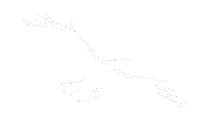
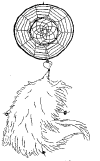
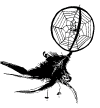
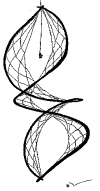
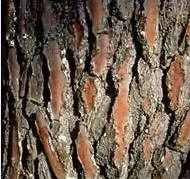


 Get
a course to promote your business online, explode your sales
Get
a course to promote your business online, explode your sales Get
software to promote your business online in less time
Get
software to promote your business online in less time
